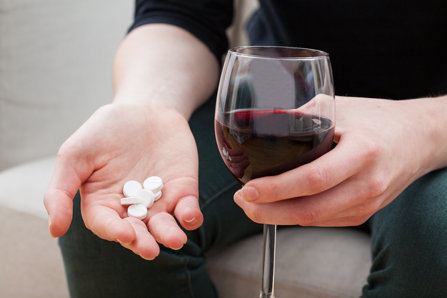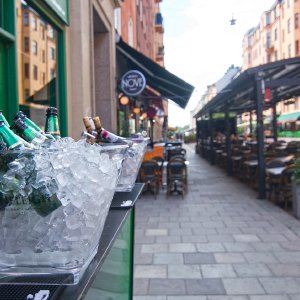Social Drinking or Alcoholism?

Alcoholic beverages are a major part of the social life in most of Europeans. Some cultures, like the French and Germans, drink alcoholic beverages with almost every meal and all of their social gatherings are well supplied with beer or wine. Alcohol abuse became so rampant in the 19th century that many religious groups tried to curb the drunkenness by making it sinful. Now, in the 20th century with the possibilities of huge profits, the alcohol industry worldwide has promoted their products to be enjoyable, safe and part of the good-life, to the point that the consumption of alcohol in the Europe continues to grow.
Social Drinkers
With alcohol continuing to become more acceptable to youth and young adults, we find that many people are abusing alcohol without realizing that their drinking is becoming a problem. Most people that call themselves “social drinkers” know the dangers of alcohol abuse and alcohol dependence, but believe that those dangers don’t apply to their level of use since they don’t consider that they have a drinking problem. They are merely “social drinkers.”
Many social drinkers will contend that they don’t have an alcohol dependency problem even though they may drink some alcohol daily. If someone defends their use of alcohol, and the ability to access alcohol is an important part of their social plans, they may be getting close to the point where their drinking is showing the signs of alcohol dependence.
Able to Stop?
A social drinker should be able to stop drinking any time without experiencing cravings, which is one of the symptoms of alcoholism. There are many “social drinkers” that seek to convince or prove to themselves and their loved ones that alcohol isn’t a problem by doing without alcohol for a week or a month, but they truthfully are continually thinking about the pleasures of drinking and craving alcohol throughout their abstinence.
Some “social drinkers,” who are using alcohol to medicate their feelings, may defend that they don’t have a drinking problem by taking anti-anxiety medicines, like Valium or Xanax, when they don’t have regular access to alcohol. Certainly these individuals are experiencing the early symptoms of alcohol dependence.

Alcohol users and their families can help evaluate whether one’s drinking falls within the parameter of social drinking by scrutinizing their feelings about drinking. If you feel guilty about your consumption of alcohol, but continue to drink, then alcohol is no longer part of a social custom, but is becoming a dependency problem. If the “social drinker” lies about his drinking or gets angry if he is challenged about the amount of his drinking, or feels that he should cut-back on his consumption, then he is experiencing the feelings and behaviors that are indicative of someone who has or will soon have a serious alcohol dependence or alcoholic problem if he continues his drinking behaviors.
Results
Anyone that continues to drink after experiencing repeated alcohol-related problems, is in need of professional help. If alcohol is causing someone to call in sick at work, or causing legal problems, like Driving Under the Influence (DUI) or even shirking responsibilities, has crossed the line where alcohol can no longer be thought of as a social nicety that helps lubricate conversation. At this point, continued alcohol consumption is a threat to one’s survival.
A self-analysis, using some of the below question, is an established beginning examination of whether one has a drinking problem or not.
- Have you ever felt you should cut down on your drinking?
- Have people annoyed you by their criticism of your drinking?
- Have you ever felt bad or guilty about your drinking?
- Have you ever had a drink first thing in the morning to steady your nerves or to get rid of a hangover?
If you respond “yes” to just one of these questions, it suggests a possible drinking problem. If you answer positively to more than one question, it is highly likely that you have an alcohol problem that needs professional help. Narconon, the most successful addiction treatment program, is a valuable resource for helping someone determine if they have an alcohol addiction problem and, if they do, Narconon offers treatment that can arrest the progression of this addiction.

What Help Is Needed?
Many people will seek medical advice concerning their potential alcohol dependency only to find that their family doctor negates their level of threat from continued drinking and could prescribe medications that may reduce the cravings for alcohol, but they won’t eliminate them and a combination of anti-anxiety medications and alcohol will only make things worse.
Most physicians are not trained or equipped to handle the multiple facets of one's life that are affected by a history of drinking and the negative consequences that come from untreated or improper treatment of this addiction.
It is common that anyone that has an alcohol dependency will be in denial that the problem is as severe as it is in actuality. One of the major reasons that addiction problems continue to escalate revolves around the alcoholic’s and his family’s denial that alcoholism is actually evolving and that things are not getting better on their own. Years of experience in watching the progression of alcoholism in individuals and their families has taught addiction professionals to help alcoholics realize that they have a problem and how to best confront these issues. True help is available through Narconon.
If you or someone you love
needs help with alcohol addiction
call Narconon today


